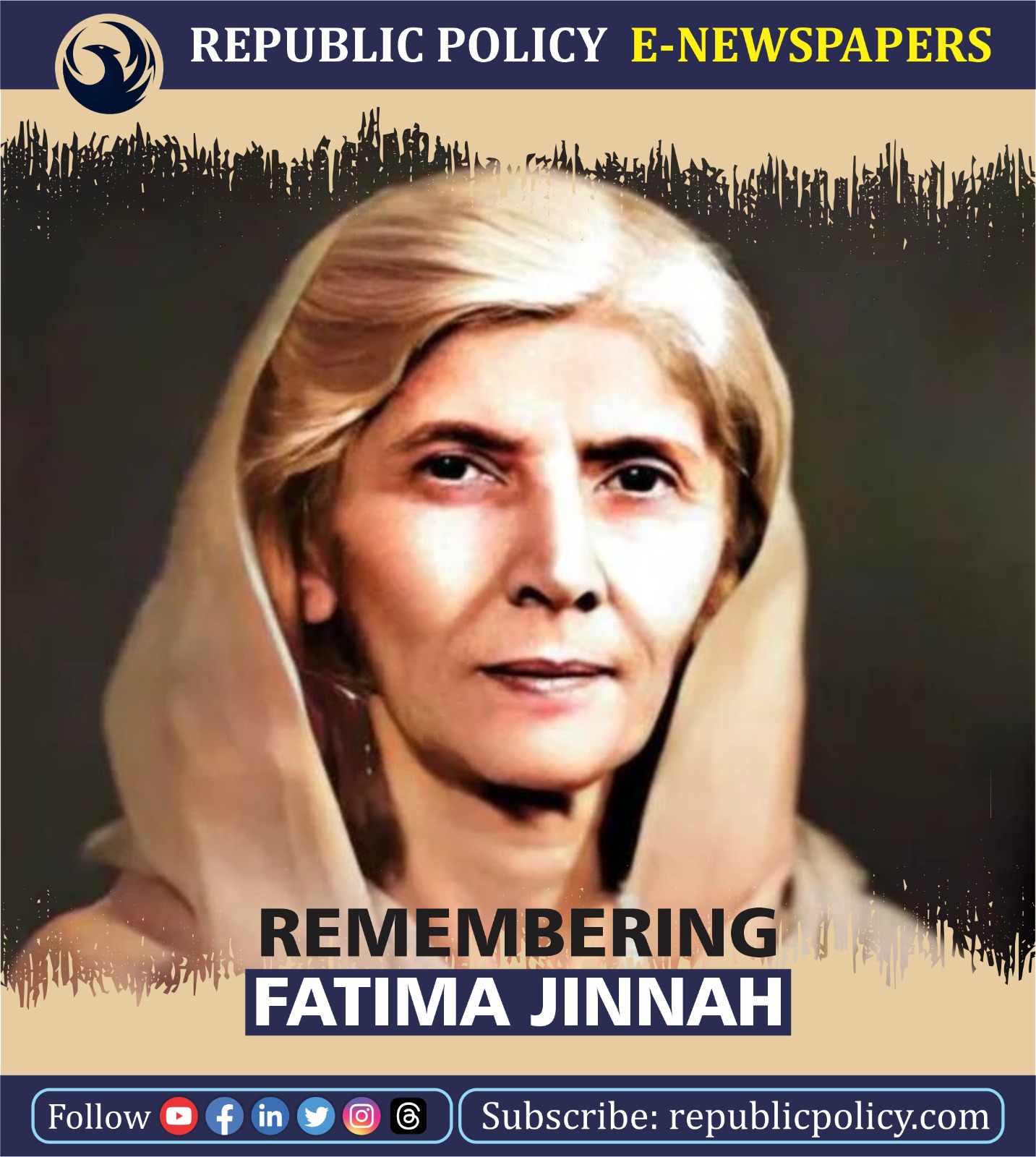By: Dr Murtaza Kamran
Fatima Jinnah was a close supporter and companion of her brother Muhammad Ali Jinnah, the founder of Pakistan and the leader of the All India Muslim League. She participated in the Pakistan Movement and attended the annual sessions of the party. She also helped popularise the party through its Women Sub-committee. She was aware of the Islamic values and the role of women in society, and worked to make the women of Pakistan financially independent and politically active. She founded the Women’s Relief Committee, which later became the All Pakistan Women’s Association (APWA), and coordinated relief activities for millions of refugees after the partition of India and the invasion of Kashmir.
Fatima Jinnah joined her brother in London in 1919 and lived with him until his death in 1948. She assisted him in his legal practice and political activities. She also accompanied him on his tours and travels across India and abroad. She became a vocal advocate of the two nation theory and a strong critic of the British Raj. She supported her brother’s demand for a separate homeland for the Muslims of India.
Don’t forget to Subscribe our Channel & Press Bell Icon.
Fatima Jinnah played a significant role in mobilising the women’s vote for the Muslim League in the 1946 elections, which resulted in a landslide victory for the party. She also addressed several public meetings and rallies to garner support for the Pakistan cause.
Fatima Jinnah was also instrumental in organising the Muslim Women Students Federation, which aimed to educate and train young women in political awareness and social service. Fatima Jinnah was one of the few women who witnessed the historic Lahore Resolution of 1940, which laid down the foundation for the creation of Pakistan.
After the independence of Pakistan, Fatima Jinnah co-founded the Pakistan Women’s Association (APWA), which played an integral role in the settlement of the women migrants in the newly formed country. She also worked for the welfare of women, children, orphans, refugees, and other disadvantaged groups. Fatima Jinnah remained the closest confidant of her brother until his death. After his death, she was banned from addressing the nation until 1951; her 1951 radio address to the nation was heavily censored by the Liaquat administration. She wrote a book titled My Brother, in 1955 but it was only published 32 years later, in 1987, due to censorship by the governments.
Fatima Jinnah came out of her self-imposed political retirement in 1965 to participate in the presidential election against the military president Ayub Khan. She was backed by a consortium of political parties, and despite political rigging by the government, won two of Pakistan’s largest cities, Karachi and Dhaka. She campaigned on a platform of democracy, civil rights, and social justice. She challenged Ayub Khan’s dictatorship and exposed his corruption and nepotism.
Fatima Jinnah faced attacks on her modesty and patriotism by Ayub Khan and his allies. She was called an Indian agent, a traitor, an old woman, and even accused of being Ahmadiyya . She bravely countered these allegations and defended her dignity and honour.
Fatima Jinnah died in Karachi on 9 July 1967. Her death is subject to controversy, as some reports have alleged that she died of unnatural causes . Her family members had demanded an inquiry, however the government blocked their request. She remains one of the most honoured leaders in Pakistan, with nearly half a million people attending her funeral in Karachi. She is considered as one of the greatest female figures and the Mother of the Nation of Pakistan.















